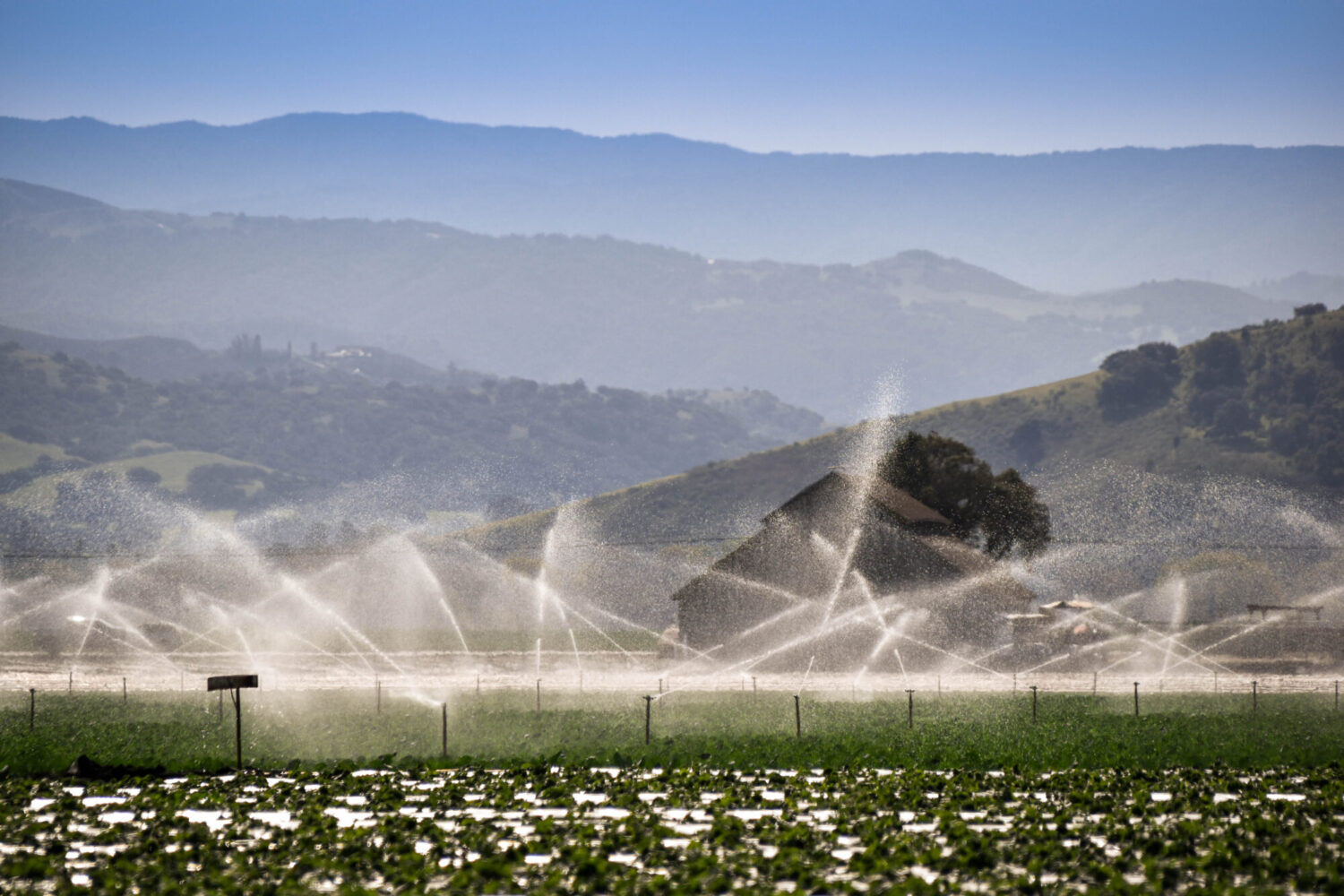
The State Water Board has accepted our request to review the rules regulating pollution from irrigated agriculture on the Central Coast.
The Central Coast is home to approximately 540,000 acres of irrigated land and approximately 3,000 farms, including some of the most intensively farmed acreage on earth. Climate and soil characteristics in the Salinas River Valley, the “salad bowl of the world,” provide for maximum output, but resulting pollution has been an afterthought at best. New rules regulating pollution from irrigated agriculture (referred to as “Ag Order 4.0) were recently approved by the Central Coast Regional Board.
California Coastkeeper Alliance, Santa Barbara Channelkeeper, Monterey Coastkeeper, and other allies have worked tirelessly for many years advocating for common sense rules that would require the agricultural industry to protect both surface water and groundwater. While the new Ag Order 4.0 rules are lacking in many ways, they also represent important victories. For example, requiring public reports of every farm’s fertilizer use, and increased testing of groundwater, which are both important steps toward addressing nitrate pollution problems.
Despite improvements, Ag Order 4.0 is illegally flawed. The Water Board caved to political pressure from industry to collect minimal site-specific water quality data so pollution can’t be traced to its source.
California Coastkeeper Alliance and Monterey Waterkeeper are working to ensure agricultural practices on the Central Coast are protective and lead to fishable, swimmable, and drinkable water. First, we are working with other stakeholders and the Regional Board to make sure the existing rules of Ag Order 4.0 are implemented in a timely, fair, and effective manner.
Second, we are demanding that Ag Order 4.0 be improved. Specifically, we are advocating that the State Water Board:
- Require water quality monitoring that allows the public to know which farms are polluting and to hold them accountable for not degrading our waterways.
- Include timelines attached to enforceable, quantifiable standards to measure how individual farms are doing their part.
- Establish and maintain healthy riparian zones to protect waterways by preventing pesticide runoff from fields.
The State Water Board should also not allow farmers to hide their data. The Monterey region’s densely populated cities, valuable natural resources, and biodiversity hotspots can no longer afford to let agribusiness operate in secrecy.
Ultimately, the duty of the Water Boards is to protect and restore water quality for today and generations to come, not to protect the short-term profits of corporate agriculture. We will defend the modest changes proposed by the Central Coast Regional Board and continue to fight for rules that will fully protect our shared water resources.
For more detail, see CCKA’s Principles to Protect Californians and Our Waterways from Unsustainable Ag, available here.
Staff Attorney Tyler Sullivan supports CCKA’s legal advocacy with a focus on the Monterey Region.



